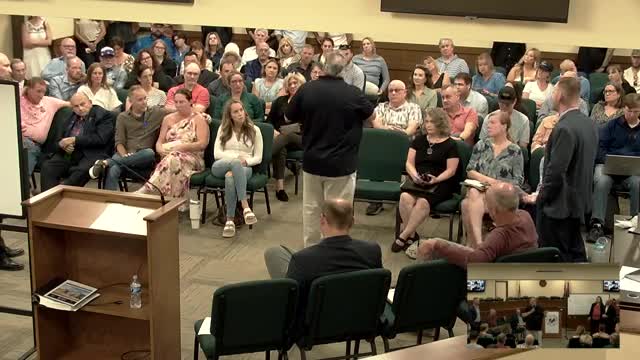Community debates short term rental regulations amid rising concerns
October 24, 2024 | Events, City of Columbia, Maury County, Tennessee
This article was created by AI summarizing key points discussed. AI makes mistakes, so for full details and context, please refer to the video of the full meeting. Please report any errors so we can fix them. Report an error »

In a recent government meeting, community members expressed diverse opinions on the regulation of short-term rentals, particularly Airbnb properties, in Columbia. The discussions highlighted a growing interest in balancing property rights with neighborhood concerns.
One participant advocated for a laissez-faire approach, emphasizing the importance of allowing property owners to enjoy their investments without excessive regulation. They pointed out the revitalization of Riverside and suggested that the city should promote mixed-use developments to enhance the area's appeal, particularly given its proximity to downtown.
The conversation shifted towards the potential implementation of conditional use permits for short-term rentals. A show of hands indicated a general consensus among attendees favoring some form of regulation, with many believing that neighbors should be notified if an Airbnb is established nearby. This sentiment reflects a desire for transparency and community awareness, particularly regarding potential increases in traffic and unfamiliar visitors.
Denise Tabscott, a resident from outside the city limits, shared her positive experiences with short-term rentals, arguing that they provide valuable opportunities for property owners. She cautioned against overregulation, suggesting that issues arising from rentals should be addressed reactively rather than preemptively. Tabscott emphasized that problems with noise or disturbances could be managed through existing law enforcement channels, rather than imposing strict regulations on rental properties.
The meeting underscored a significant divide between those advocating for minimal regulation to foster economic opportunities and those concerned about the impact of short-term rentals on neighborhood dynamics. As the city considers its approach to regulating these properties, the discussions reflect a broader conversation about property rights, community standards, and the evolving landscape of housing in Columbia.
One participant advocated for a laissez-faire approach, emphasizing the importance of allowing property owners to enjoy their investments without excessive regulation. They pointed out the revitalization of Riverside and suggested that the city should promote mixed-use developments to enhance the area's appeal, particularly given its proximity to downtown.
The conversation shifted towards the potential implementation of conditional use permits for short-term rentals. A show of hands indicated a general consensus among attendees favoring some form of regulation, with many believing that neighbors should be notified if an Airbnb is established nearby. This sentiment reflects a desire for transparency and community awareness, particularly regarding potential increases in traffic and unfamiliar visitors.
Denise Tabscott, a resident from outside the city limits, shared her positive experiences with short-term rentals, arguing that they provide valuable opportunities for property owners. She cautioned against overregulation, suggesting that issues arising from rentals should be addressed reactively rather than preemptively. Tabscott emphasized that problems with noise or disturbances could be managed through existing law enforcement channels, rather than imposing strict regulations on rental properties.
The meeting underscored a significant divide between those advocating for minimal regulation to foster economic opportunities and those concerned about the impact of short-term rentals on neighborhood dynamics. As the city considers its approach to regulating these properties, the discussions reflect a broader conversation about property rights, community standards, and the evolving landscape of housing in Columbia.
View full meeting
This article is based on a recent meeting—watch the full video and explore the complete transcript for deeper insights into the discussion.
View full meeting
